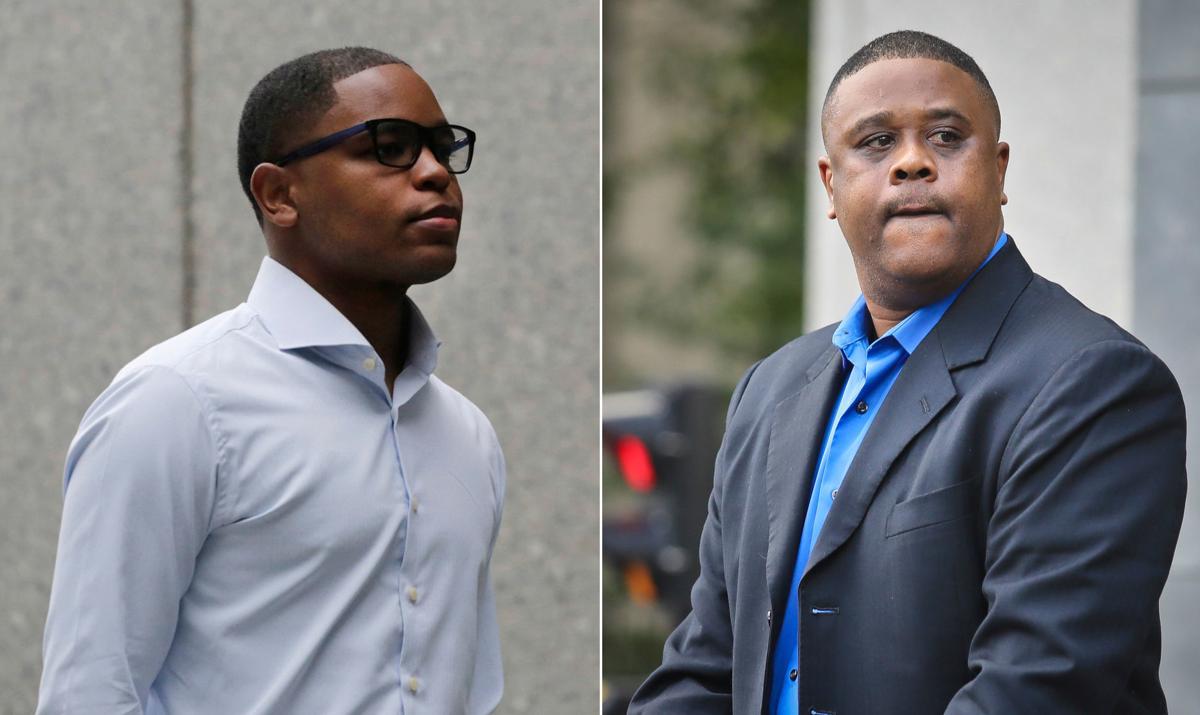NEW YORK — A scandal in which college basketball coaches, including Arizona’s Book Richardson, were bribed to steer NBA-bound players to favored agents and money managers was motivated by greed, a prosecutor told jurors Tuesday.
Assistant U.S. Attorney Eli Mark said at the opening of a criminal trial that Christian Dawkins cheated to elevate prospects for his fledgling sports management company.
“This is a case about money, bribes and college basketball,” Mark said. “It’s about the seedy underside of college sports and two men looking to get ahead.”
Dawkins’ lawyer, Steve Haney, called it an FBI-led setup.
Haney said Dawkins was 22 years old in 2017, when the undercover FBI agents posing as investors and a cooperator seeking leniency from criminal charges met him on a yacht in lower Manhattan to convince him to bribe college coaches. Haney said that although Dawkins accepted thousands of dollars in cash given to him on the yacht, jurors will learn that Dawkins and co-defendant Merl Code resisted the plan to bribe coaches.
“He said he was going to bribe the coaches, but he didn’t,” Haney said.
Rather, Haney said, Dawkins gave Richardson “the literal playbook” on how to hustle Jeff DeAngelo, an undercover agent posing as an investor, out of money. Dawkins told Richardson he didn’t care what he did with DeAngelo’s money, Haney said — although a federal complaint says he used it to help Arizona land a recruit.
“Go on vacation if you want,” Dawkins told Richardson, according to Haney.
Haney predicted a not guilty verdict for Dawkins.
“You are not going to condemn a man for something he didn’t do,” the lawyer told jurors.
Attorney Andrew Mathias, representing Code, said evidence will show his client did not want to bribe coaches.
“Merl wanted to get paid for making introductions,” Mathias said.
Dawkins and Code are facing felony bribery charges. This week’s trial is the second involving the men and corruption in college sports; both were found guilty of separate felonies in October.
Richardson and other college assistants, including USC’s Tony Bland, have taken plea deals in recent months. Richardson will be sentenced May 30 after pleading guilty to a federal bribery charge. His crime normally carries a sentence of between 18 and 24 months in prison, though it’s possible Richardson receives less.
The first full day of the trial was highlighted by claims involving another sport — college football.
Cooperating witness Louis Martin “Marty” Blazer testified Tuesday that he paid between several hundred and several thousand dollars each to family members or associates of football players from Pitt, Penn State, Michigan, Notre Dame, Northwestern, North Carolina and Alabama between 2010-14. In exchange, Blazer said, he hoped the players would hire him as a financial advisor when they turned pro.
“I would send Western Union funds to their girlfriend or friend or family member,” Blazer testified. “That person would pick it up and I would confirm that they got it.”
Blazer testified that in 2008 or 2009, an unnamed Penn State assistant coach set up a meeting between him and the father of an unnamed star because the coach was concerned the player would leave for the NFL draft. Blazer testified he gave the player’s father $10,000 in a check, which he said the father later paid back. He said the player went on to become the No. 11 pick in the 2009 NFL draft. Buffalo selected former Penn State star Aaron Maybin that year.
Blazer testified that he frequently traveled to North Carolina to meet with football players there in hopes they would sign with him as their financial advisor, and said he had a relationship with someone who ended up being the Giants’ first-round pick. The Giants drafted wide receiver Hakeem Nicks of North Carolina in the first round in 2009.
“I went down to North Carolina and developed relationships and started paying these guys,” Blazer said.
“I wasn’t the only one paying them. There were other agents involved.”
Blazer testified he was never arrested or charged in connection with the North Carolina payments. He also said he never paid a college football coach. “No,” he said.
Blazer pleaded guilty in 2017 to wire fraud, securities fraud, aggravated identity theft and making false statements and documents. He faces a maximum sentence of 67 years in prison. Blazer is likely to serve less time because of his longstanding cooperation with the investigation into college corruption. While Blazer said nothing he says in the case will impact his sentencing, he’s hoping for “something less than 67 years.”
Blazer’s testimony will continue on Wednesday.





